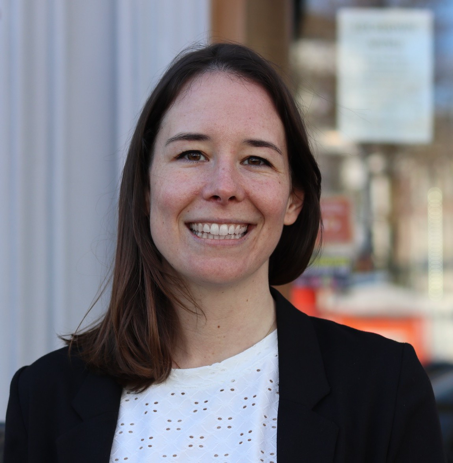Diversity & Inclusion efforts and in particular efforts to increase the feeling of belonging in different social spaces are predominantly focussed on minoritized groups such as people with a migration background. But do members of the ‘other group’– people without a migration background – always feel like they belong? This question becomes more pressing in contexts where people without a migration background are a minority. In Amsterdam, for instance, there are more people with a migration background than without. Because of on-going segregation processes within ethnically diverse neighbourhoods, people without a migration background are confronted with contexts in which they are a numerical ethnic minority while another ethnic group dominates that context. Given that being a minority can make you question feelings of belonging, in our most recent research (Kraus & Crul, 2022) we were curious to test whether this is also the case for a group generally considered to always feel ‘belonging' and if so, can the feeling of belonging be increased?
When people enter spaces for the first time, they immediately assess to what level the others in that space accept them. For instance, in our study, participants without a migration background who live in ethnically diverse neighbourhoods do not usually go to the “Turkish restaurant” around the corner because they do not know if “they are welcome there”, their visit may be “inappropriate” or they will be looked at “suspiciously”. Coming from a different ethnic background, they believe to be perceived as having “no business” there. Maybe you recognize this feeling in similar situations or other instances in which one of your social identities is not commonly reflected in the majority population. In the literature this emotion is referred to as belonging uncertainty (Walton & Cohen, 2007). Belonging uncertainty is the feeling that “people like me do not belong here” and it has been found to have a great effect on our actions. Feelings of belonging guide career choices (Good et al., 2012), influence motivation and achievement (Walton & Cohen, 2007) and affect academic and health outcomes (Walton & Cohen, 2011). A variety of ways exist to respond to belonging uncertainty, one of which is withdrawal from spaces. If you believe a certain space may give you discomfort, you simply stay away from it to avoid the negative feeling.
In our research, we sought out a way to diminish the feeling of belonging uncertainty. Is it possible to reduce the feeling of belonging uncertainty in a way that people without a migration background might be more willing to frequent spaces in which they are an ethnic minority? This could potentially pave the way for meaningful inter-ethnic contact. In an experiment, we tested whether certain forms of inclusion cues have the power to reduce the feeling of belonging uncertainty. We described to our respondents without a migration background a fictitious street festival organized by an Amsterdam neighbourhood association with a Turkish name, represented by a man with a Turkish sounding name. In this way, the hypothetical scene conveys the idea that another ethnic group dominates the space and people without a migration background will be in a minority position.

© Pixabay
To the first group we presented a text in which the event and its features were described. To the second group we presented the same text but added a statement that everyone is welcome to join.
The latter group who read that everyone is welcome felt significantly more belonging to the event, which in turn made them more willing to visit the event. Letting people know that they are accepted makes an important difference and decreases the feeling of belonging uncertainty, which in turn indirectly increases the willingness of our respondents to join the event.
Coming back to the opening question on whether people without a migration background always feel like they belong, we can say: not always. Despite being the country’s ethnic majority who, in general, are perceived to be the ‘natural occupants’ of spaces (Puwar, 2004), in this circumstance we find that people without a migration background are highly sensitive to information about their belonging. The feeling of belonging among people without a migration background is not a matter of course. This group does experience belonging uncertainty in particular contexts but this feeling can be reduced by the use of specific inclusion cues.
It is important to emphasize that with this study we do not want to imply that ethnic minorities should make it their priority to include an otherwise privileged group. However, if the goal of policy makers is to encourage more ethnically diverse environments, this study offers a strategy that helps them to do so while at the same time involving a social group usually not considered in Diversity & Inclusion issues (see this blog post).
For more information, see the author’s accompanying paper written together with prof. dr. Maurice Crul in City Culture and Society.
References
Good, C., Rattan, A., & Dweck, C. S. (2012). Why do women opt out? Sense of belonging and women’s representation in mathematics. Journal of Personality and Social Psychology, 102(4), 700–717. https://doi.org/10.1037/a0026659
Kraus, L.-M., & Crul, M. (2022). Signalling inclusion, increasing belonging: People without a migration background in ethnically diverse neighbourhoods. City, Culture and Society, 100461. https://doi.org/10.1016/j.ccs.2022.100461
Puwar, N. (2004). Space Invaders. Berg Publishers.
Walton, G. M., & Cohen, G. L. (2011). A Brief Social-Belonging Intervention Improves Academic and Health Outcomes of Minority Students. Science, 331(6023), 1447–1451. https://doi.org/10.1126/science.1198364
Walton, Gregory M., & Cohen, G. L. (2007). A question of belonging: Race, social fit, and achievement. Journal of Personality and Social Psychology, 92(1), 82–96. https://doi.org/10.1037/0022-3514.92.1.82
Bio
As part of the Becoming a Minority (BaM) project, funded by ERC and led by prof. dr. Maurice Crul as PI., Lisa-Marie Kraus conducted her PhD research at the Vrije Universiteit Amsterdam. Her research interests concern the experiences of people without a migration background in European majority-minority cities.

